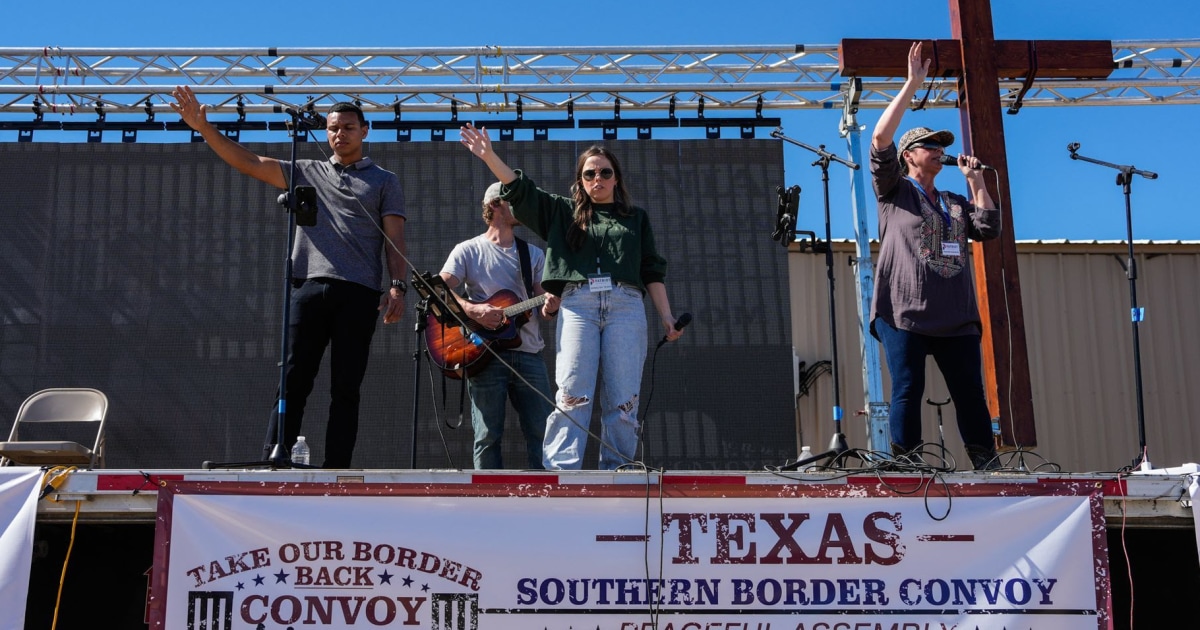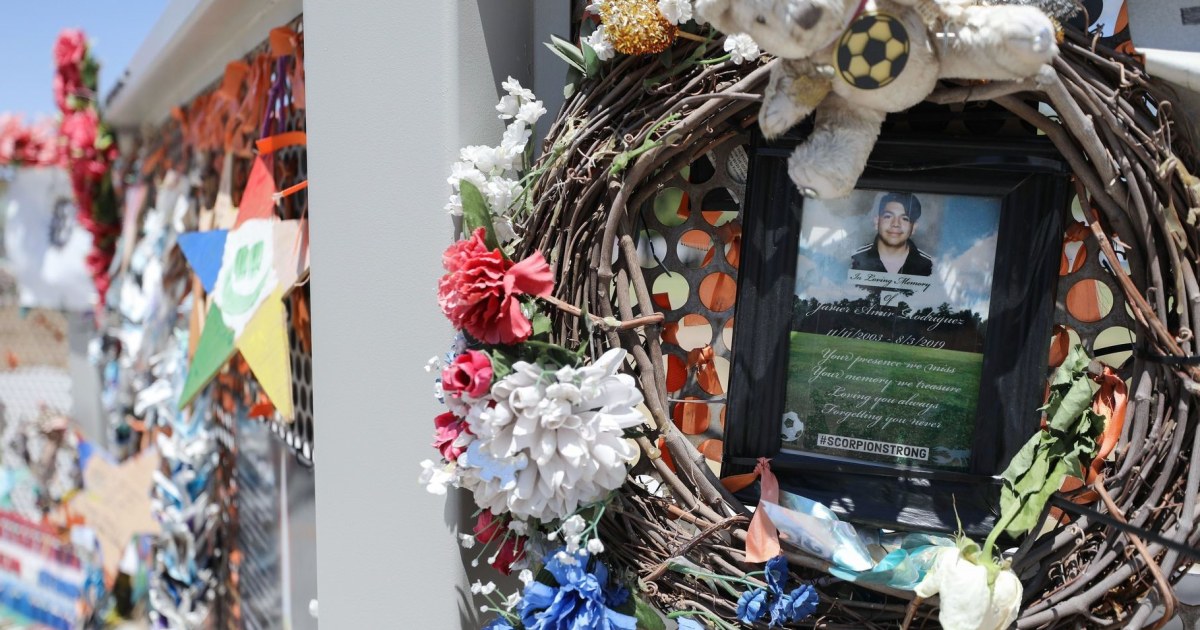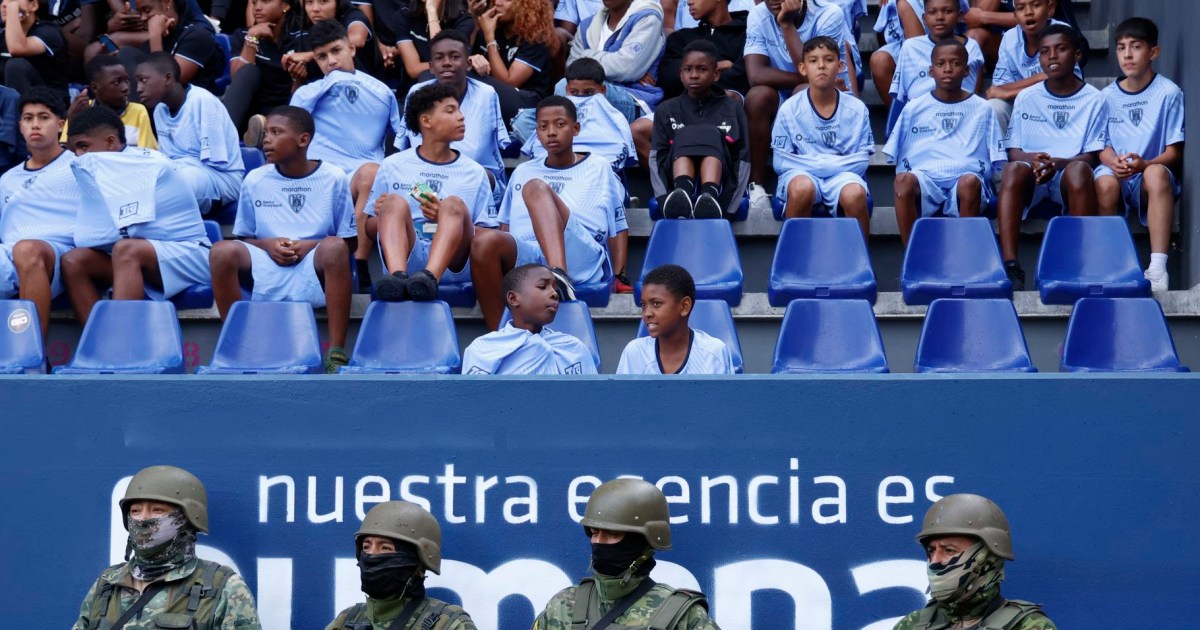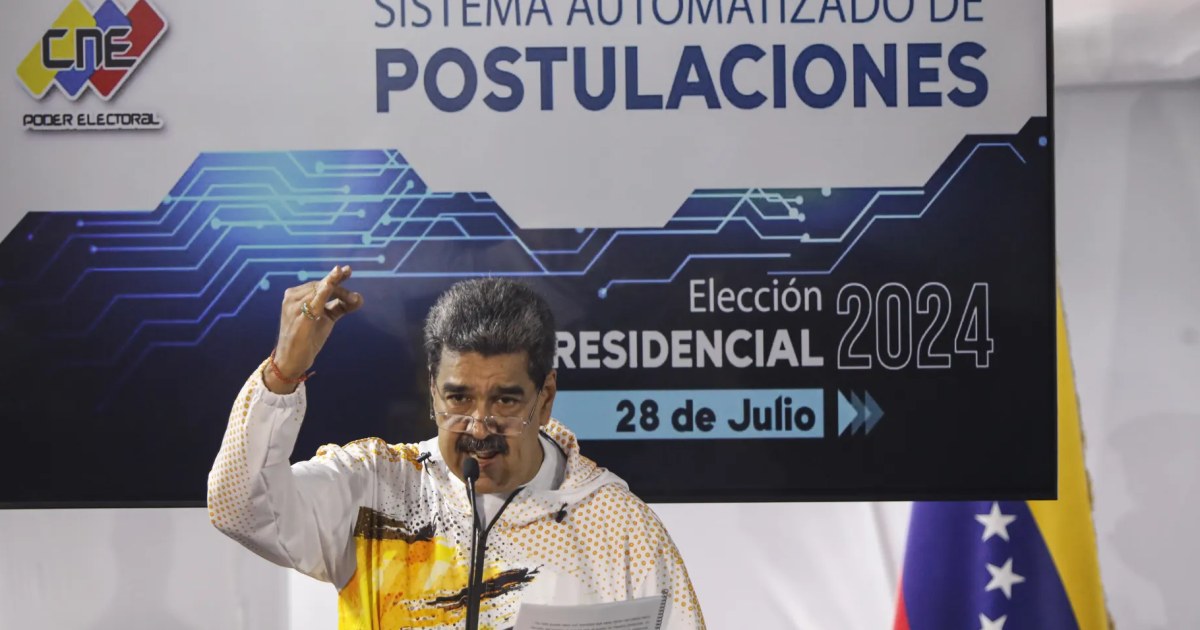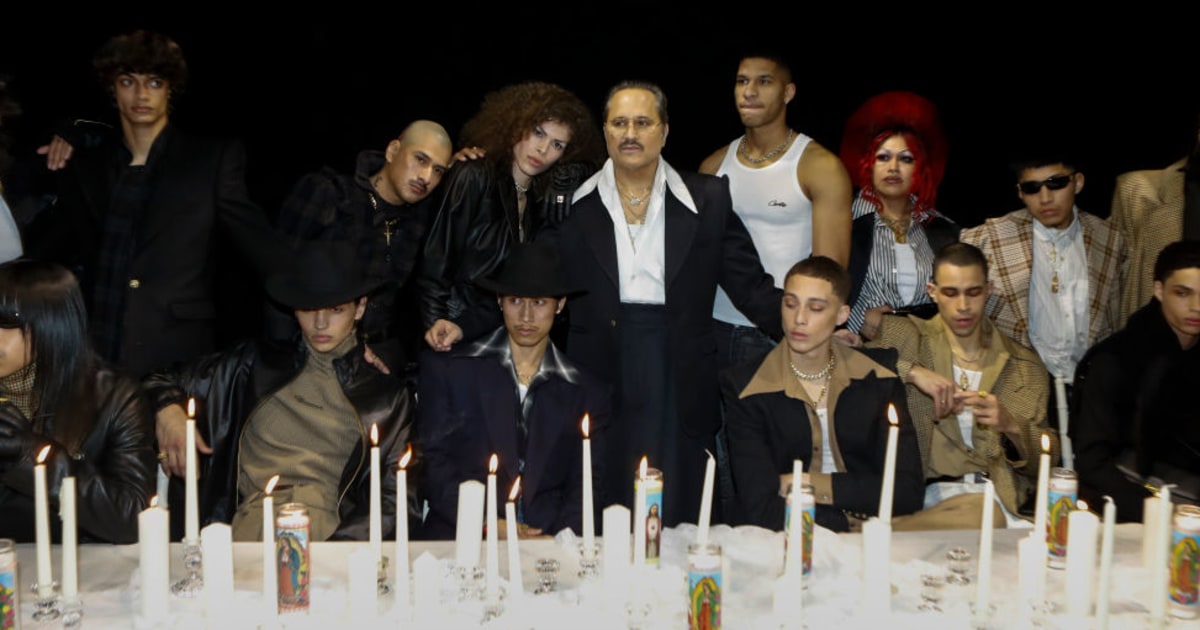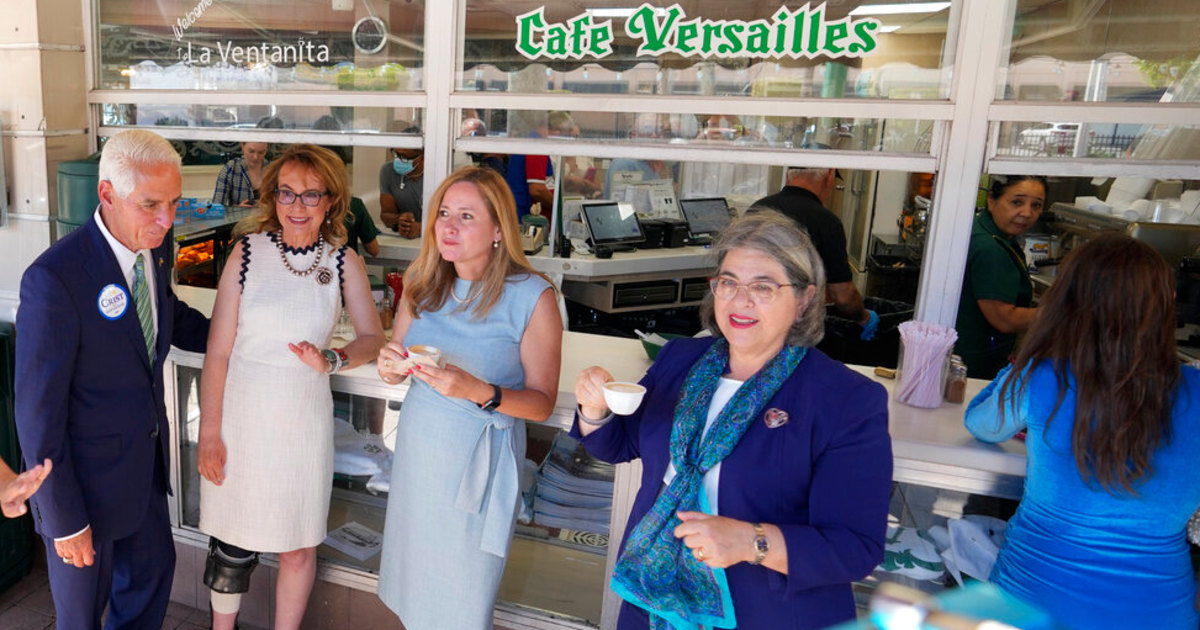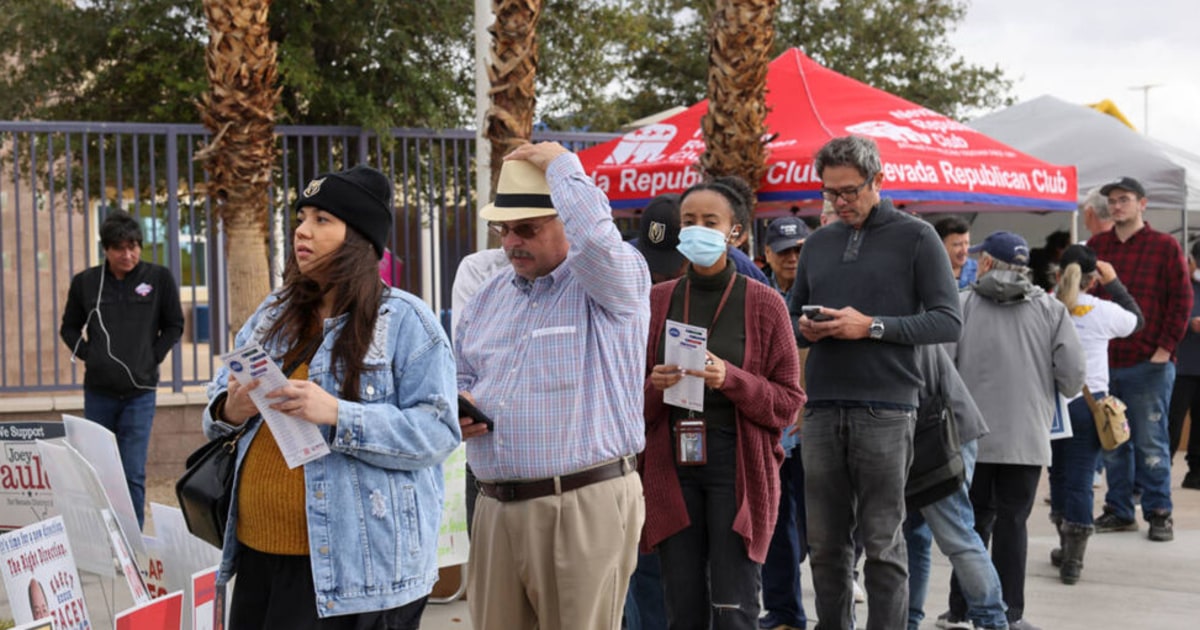By
Marina E. Franco
and
Russell Contreras
Welcome to Axios Latino
, a newsletter designed to tell you every Thursday the stories that have a special impact on the Latino communities in the United States and in Latin America.
If you are interested in subscribing and receiving it in your mail in English, you can do so by clicking here.
Every week we will publish the
newsletter
on Noticias Telemundo also in Spanish for those who prefer it in this language.
1 theme to highlight: Children caught in the migratory maelstrom
Sarah Grillo / Axios
Two girls were thrown from the border wall and several children have been found wandering alone in the desert: minors from countries such as Ecuador, Nicaragua and Guatemala have had to be rescued after being abandoned in the middle of the extreme journey to reunite with relatives who already They are in the United States.
The general situation:
Coyotes are even advertising on Facebook and increasingly taking advantage of the desperation of people seeking to flee hunger, poverty and violence in their countries, or those who want to keep their children away from such circumstances.
In social media ads, coyotes offer false promises of easy and safe travel and easy migration processes.
Nearly 19,000 unaccompanied minors, a record number, were intercepted at the US-Mexico border in March, according to immigration authorities.
That number is double that registered in February and the highest number of arrivals of single children in a month since it has been registered.
“They suffered from abandonment, sometimes hunger, sometimes they didn't pick them up from school and they sat there alone,” the aunt of the girls who were thrown from the wall told Noticias Telemundo from Ecuador.
Both will be reunited with their parents who had already emigrated and are in the US.
Girls represent about 70% of minors who have been in Department of Health shelters in recent weeks.
In a joint call on Wednesday, Mexican President Andrés Manuel López Obrador and US Vice President Kamala Harris agreed to "join forces in the fight against human trafficking and the protection of human rights, especially of children."
What's behind:
The Department of Homeland Security announced Wednesday that it is investigating another 5,600 possible cases of children who have been separated from their families under the previous government's zero tolerance policy.
The current Administration, however, still does not reunite any of the hundreds of minors who had already been identified as victims of family separation.
The United States is
immediately
expelling
adult migrants who cross illegally.
That has led to more than 22,000 people trying to apply for asylum in Mexico as a last resort.
That record number is almost the same number of all cases pending review of asylum requests that that country has already had since 2018.
2. The military campaign that has displaced even more Venezuelans
Venezuela reinforces its military operation on the border with Colombia in the face of recent clashes
March 29, 202101: 19
The Venezuelan regime of Nicolás Maduro has launched military operations against armed groups and dissident guerrillas on its border with Colombia, as part of an unexpected campaign that has had a direct impact on thousands of civilians fleeing to avoid being caught in the crossfire. .
Why it matters:
The sudden attacks in Apure state come after years in which the Maduro regime had not intervened in the region.
The new emigrants due to the fighting in the area join millions of Venezuelans who had already had to flee their country due to the extremely high levels of malnutrition, hyperinflation and the prolonged political crisis.
The Venezuelan Armed Forces, the FAES, have faced complaints for years that they commit extrajudicial executions and that they carry out arbitrary arrests.
Now there are reports from Apure that the FAES are killing peasants under the pretext that they may be guerrillas.
The other version:
Delcy Rodríguez, vice president of that country, affirmed without giving evidence recently that the military campaign is against groups that intend to bring “violence and criminality” to Venezuela with “imperial plans”, a veiled reference to the supposed US involvement.
[Two kidnappings made him flee from Venezuela. Years go by and asylum in the US does not come]
3. Higher probability of death from COVID-19 for Latino youth
Agricultural worker in California during the COVID-19 pandemic Telemundo
Latinos ages 20 to 54
are at risk from a disproportionately high death rate if they catch COVID-19, just as several US states are in the process of fully reopening businesses.
Latino immigrants, not born in the United States and who have essential or front-line jobs, face an even greater danger.
In California, a Latino immigrant worker is 11.6 times more likely than US-born women or men to die from coronavirus, according to an analysis by the University of Southern California.
In New Jersey, one of the five states that currently has the highest number of new coronavirus cases, young Latinos are dying seven times more than white people and 4.5 times more than Latinas in the state.
In short:
The inequalities in the figures underscore the importance of vaccination reaching the most affected people directly, especially since they have a greater participation in industries that many throughout the country depend on, such as agriculture and agriculture. of services.
Organizations like Planned Parenthood and United Farm Workers have launched local projects focused on vaccinating Latino and Black people who do front-line jobs, such as mobile vaccination clinics.
4. A rose
by any other name
The protagonists of the bilingual adaptation of 'Romeo y Julieta' include Lupita Nyong'o, Julio Monge and Juan Castaño. Illustration by Erick Dávila for The Public Theater
A new bilingual production of Shakespeare,
entitled
Romeo and Juliet,
offers a new way of approaching a classic just as theater companies are beginning to diversify their productions.
Why it matters:
Having a new approach to classical works and making settings more faithful to diversity outside of theater gives more relevance to certain ancient texts and helps more people take an interest in them, according to scholars.
In his own words:
“There are so many bilingual people, but we hardly ever get something like this in cultural spaces,” says Ricardo Pérez González, the playwright who made the adaptation in the two languages, to Noticias Telemundo.
"It is for us, the children of the diaspora that we live between cultures, between languages: this production of
Romeo and Juliet
lives with us in that intermediate space."
Read more about it
: A transition from theater towards more recognition of diversity
5. Elections where 'undecided' is the preferred candidate
Four of the 18 presidential candidates of Peru.
From left to right: Hernando de Soto, Yonhy Lescano, Keiko Fujimori and Rafael López Aliaga.EFE
The presidential candidate that leads in polls in Peru is ... "I don't know", just days before the vote this Sunday.
The vote will happen despite the third wave of coronavirus infections and political disenchantment among the population.
Why it matters:
One of the largest Latin American economies (and the 47th largest in the world) has been in a political whirlwind for years that has undermined support for democracy, to the point that none of the candidates is even remotely close to passing the threshold of 50% of the vote necessary to avoid a ballot.
In Peru, it is mandatory to go to the polls, or a fine must be paid, so the null vote (blank) or for no one is a way of protesting the situation.
The South American country has one of the worst death rates from COVID-19 in the continent, and yet among the candidates there is a legislator who says that getting a salt water mouthwash kills the coronavirus (it does not) and three other candidates They tested positive for the virus recently.
[This is how they are vaccinating in Latin America: one country is "an example to the world" and another is "on the edge of the abyss"]
The general situation:
Peru has had five presidents in the last decade, three of them in the last year alone, and most of its recent former leaders are embroiled in trouble.
In order, those former leaders: have resigned under the pressure of protests (Manuel Miranda);
they have been removed by Congress (Martín Vizcarra);
they have resigned to avoid a political trial (Pedro Pablo Kuczynski);
they have spent time in prison on suspicion of corrupt acts (Ollanta Humala);
they have possibly committed suicide to avoid arrest (Alan García);
they have spent time behind bars for money laundering (Alejandro Toledo), and are serving sentences for crimes against humanity (Alberto Fujimori).
The Government of Peru decrees absolute quarantine in 10 regions of the country
Jan. 27, 202100: 31
Ecuador also has a presidential election
this Sunday.
It is a close contest between former banker Guillermo Lasso and Andrés Arauz, the dolphin of former President Rafael Correa (who is accused of corruption, although he says the charges are political revenge and is exiled in Belgium).
6. One step forward and three back
The little economic recovery that is already beginning to be seen has not yet reached Latino and black women in the US Unemployment rates for them are 3.3% higher than for white women, compared to the figures of the beginning of the 2020, based on data from the Bureau of Labor Statistics.
Why it matters
: Half of Latinas in the US say they have struggled in the past year to pay for the basics, such as food, housing or childcare, according to a recent survey.
Almost half say they also have no savings of more than $ 300, a problem that has existed since before the pandemic but has been made worse by the economic consequences of the coronavirus.
The situation has meant losing
four years of labor advances for women in the countries that make up the Organization for Economic Cooperation and Development (OECD).
In Latin America, between 25 and 31%
of women do not have their own income and have been forced to become dependent, which can even worsen situations of domestic violence, according to ECLAC data.
Women historically have more
trouble being able to re-enter the workplace after economic downturns, while many are forced to continue doing unpaid domestic work and caring for children.
7. Beautify a town with artistic intervention
Painters from 18 countries transform a town in Honduras into an open-air gallery
April 5, 202100: 22
A Honduran town has just painted its life in other colors: a group of muralists from all over Latin America, and even from countries like Switzerland, made an intervention in the municipality of La Arada.
They called it a guancasco - like the typical dance of the Lenca people - but of art, and they filled the facades of the buildings with paintings alluding to the town, its agricultural tradition and the local fauna.



